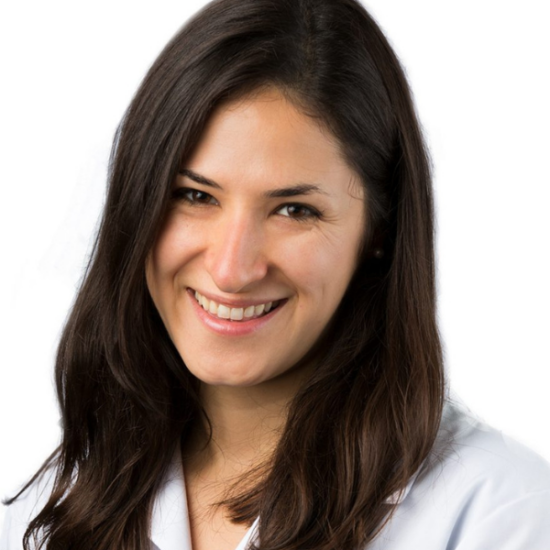Medical Students
Learn about OBGYN opportunities available to medical students, including clerkships, electives and more.
Intro Heading link
The Department of Obstetrics and Gynecology at the University of Illinois at Chicago is invested in providing high-quality undergraduate medical education founded in evidence-based practice that emphasizes inclusive and compassionate healthcare delivery in the ever-evolving world of modern medicine. Our attendings and residents work to create a learning environment that encourages each student to synthesize important considerations and knowledge in the realm of OBGYN care, develop diagnostic and exam skills, and build into their future professional identity regardless of their planned career discipline.
Please explore our page to engage your curiosity about our department as a current or prospective student. Regardless of what drew you here, we welcome you and are available for questions!
Best,
The Department of Obstetrics and Gynecology Undergraduate Medical Education Leadership
For Prospective Students Heading link
-
Help with planning application into OBGYN
OBGYN has become an increasingly more competitive field of medicine to enter after medical school graduation. Due to this, potential applicants are advised to seek early support from physician advisors familiar with the match process and recent match-cycle competitiveness. While not all medical students know their planned career field early in training, engagement with the department once you determine your plan to apply can help you create a path to success in the process. For a detailed primer on how to find success in application and match to OBGYN, visit the link below.
-
Education, Training, and Certification
The education and training requirements for OBGYN are set by the American Board of Obstetrics and Gynecology (ABOG) and include the following:
- Graduation from an approved medical school
- Completion of an OBGYN residency program (minimum of four years in length) that is accredited by the American Council for Graduate Medical Education (ACGME)
- Rotations divided between obstetrics, gynecology, gynecologic oncology, reproductive endocrinology, and ultrasonography
- Experience in primary and preventive care role for the equivalent of at least six months of the residency, including inpatient and ambulatory care; diagnosis and management of breast disease and lower urinary tract dysfunction; performance and interpretation of diagnostic pelvic and transvaginal ultrasound
- Increase in patient responsibility with each year of training
Board Certification
After graduation, all OBGYNs (even if they plan fellowship-training) have a two-step certification process through ABOG. The first step is completed right at graduation in an online multiple-choice format. The second step can only be completed after passing the first and is a three-hour oral-examination performed by specialized examiners at ABOG headquarters in Dallas, Texas. Most hospital systems in the US require board-eligibility or certification for credentialing.
-
Subspecialties in OBGYN
There are numerous subspecialties in OBGYN that require additional fellowship training. Many participate in the National Resident Matching Program service but all require application, interview, and acceptance to the training program. Most of these subspecialties have a separate certification process from the generalist OBGYN boards.
Gynecologic Oncology – Three to Four Years
This specialty provides consultation and comprehensive management of patients with gynecologic cancers like ovarian, endometrial, and cervical malignancies. This subspecialty is largely surgical but many providers also manage chemotherapy and participate in multidisciplinary care teams with pathology, interventional and oncologic radiology, and care coordinators. To learn more, visit The Society of Gynecologic Oncology website.
Maternal/Fetal Medicine – Three Years
These physicians provide care and consultation of high-risk obstetric patients, including those with diagnosed fetal anomalies/conditions, underlying complex maternal health conditions, and severe pregnancy complications. These specialists also have specialized training in advanced ultrasound skills to assist diagnosis and management options. To learn more, visit Society for Maternal Fetal Medicine website.
Reproductive Endocrinology and Infertility – Three Years
REI subspecialists provide care to help diagnose and manage infertility, recurrent pregnancy loss, and complex endocrine conditions that impact the female reproductive system. Many times they provide advanced infertility services including in vitro fertilization, preimplantation diagnosis, and intra-cytoplasmic sperm injection (ICSI). To learn more, visit Society for Reproductive Endocrinology and Infertility website.
Female Reconstructive Pelvic Surgery – Three Years
Sometimes also known as urogynecologists, FPMRS physicians provide care for conditions that impact the female urogenital tract, often including pelvic organ prolapse and incontinence disorders. This is a highly-surgical/procedural field of OBGYN and includes use of several in-office assessments and treatments to help provide care. To learn more, visit American Urogynecologic Society website.
Complex Family Planning – Two Years
FP subspecialists provide care that centers on supportive and skilled abortion care along with being experts on complex contraception counseling and needs. This subspecialty is a balance between procedural/surgical practice and office-counseling and care. To learn more, visit the Society of Family Planning website.
Minimally-Invasive Gynecologic Surgery – Two Years
MIGS physicians provide highly-skilled surgical techniques to manage some of the most complex benign gynecologic conditions including severe endometriosis and fertility-sparing, minimally-invasive management of uterine fibroids. They are often the developers of cutting-edge surgical techniques and technology in OBGYN. To learn more, visit American Association of Gynecologic Laparoscopists website.
Pediatric and Adolescent Gynecology – Two Years
These subspecialists provide gynecologic care for young patients with a focus on both routine care and diagnosis and management of abnormalities of puberty and development. They provide both office-based and surgical care and are skilled at creating a safe and supportive caring environment for even the youngest of patients. To learn more, visit The North American Society for Pediatric and Adolescent Gynecology website.
Breast Disease – One to Two Years
These subspecialists provide comprehensive breast care including surgical care of benign and malignant breast conditions. While this is a field that can be entered from a number of surgical residencies, gynecologists that seek this training are able to provide a broader medical home to their patients by expanding to more complex breast care. Visit Society of Surgical Oncology website to learn more.
Global Women’s Health – Two Years
These physicians provide comprehensive generalist care in the context of global resources, outreach, and policy development. They work to improve local and national understanding of global health concerns and often spend portions of their time providing care, working on systems development, and creating sustainable training and curricula in other nations. Visit American College of Obstetricians and Gynecologists website.
There are numerous further options for post-graduate training in OBGYN, including infectious disease, critical care, genetics, and more!
For Current Students Heading link
-
OBGYN Student Interest Group
The OBGYN Student Interest Group offers medical students across all academic years opportunities to explore departmental research, networking, skills-practice, hands-on shadowing, and professional identity enrichment. Our organization is student-led with faculty support and has featured events such as labor simulation, shadowing weeks for M1 and M2 students in Labor and Delivery, OBGYN networking mixers, free student attendance to UIH OBGYN academic conferences, clinical skills workshops, specialty panels, and residency preparedness meetings. If you are currently a UI COM student, please check out our Slack channel!
Our student board holds elections in the mid-winter each academic year and is a great opportunity for leadership, innovation, and interprofessional collaboration as our group commonly co-hosts events with other organizations throughout the COM.
For more information, please email obgynsiguicom@gmail.com, join our Slack channel, or contact Priyanka Gokhale, MD (pgokhale@uic.edu, OBSIG Faculty Supervisor).

